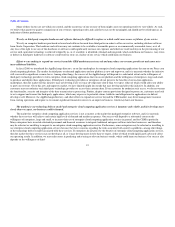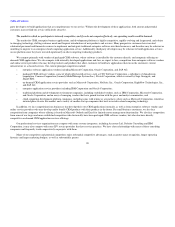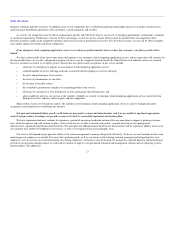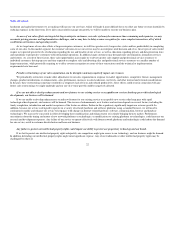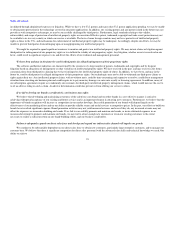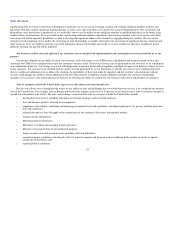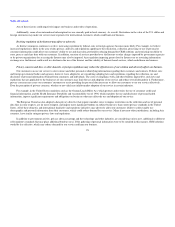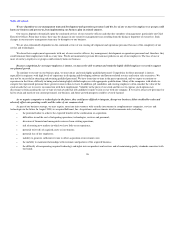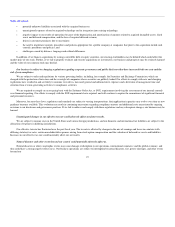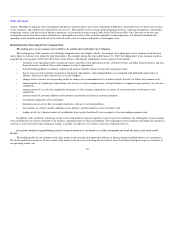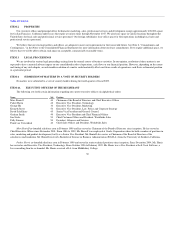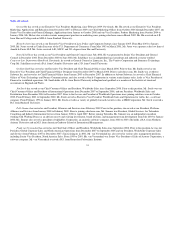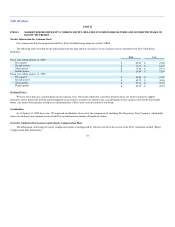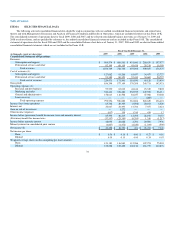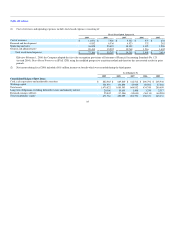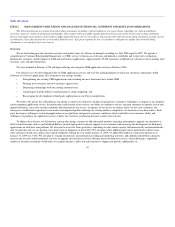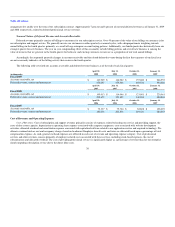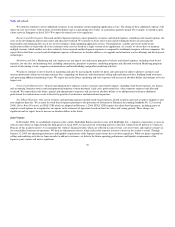Salesforce.com 2008 Annual Report Download - page 32
Download and view the complete annual report
Please find page 32 of the 2008 Salesforce.com annual report below. You can navigate through the pages in the report by either clicking on the pages listed below, or by using the keyword search tool below to find specific information within the annual report.
Table of Contents
stock price could decline rapidly. Furthermore, if one or more of these analysts cease coverage of our company, we could lose visibility in the market, which
in turn could cause our stock price to decline.
The concentration of our capital stock ownership with insiders will likely limit your ability to influence corporate matters.
Our executive officers, directors, and several stockholders and their affiliated entities together beneficially own a majority of our outstanding common
stock.
As a result, these stockholders, if they act together or in a block, could have significant influence over most matters that require approval by our
stockholders, including the election of directors and approval of significant corporate transactions, even if other stockholders oppose them. This concentration
of ownership might also have the effect of delaying or preventing a change of control of our company that other stockholders may view as beneficial.
Provisions in our amended and restated certificate of incorporation and bylaws and Delaware law might discourage, delay or prevent a change of
control of our company or changes in our management and, therefore, depress the trading price of our common stock.
Our amended and restated certificate of incorporation and bylaws contain provisions that could depress the trading price of our common stock by acting
to discourage, delay or prevent a change in control of our company or changes in our management that the stockholders of our company may deem
advantageous. These provisions among other things:
• establish a classified board of directors so that not all members of our board are elected at one time;
• permit the board of directors to establish the number of directors;
• provide that directors may only be removed "for cause" and only with the approval of 66 2/3 percent of our stockholders;
• require super-majority voting to amend some provisions in our amended and restated certificate of incorporation and bylaws;
• authorize the issuance of "blank check" preferred stock that our board could use to implement stockholder rights (also known as a "poison pill");
• eliminate the ability of our stockholders to call special meetings of stockholders;
• prohibit stockholder action by written consent, which requires all stockholder actions to be taken at a meeting of our stockholders;
• provide that the board of directors is expressly authorized to make, alter or repeal our bylaws; and
• establish advance notice requirements for nominations for election to our board or for proposing matters that can be acted upon by stockholders at
annual stockholder meetings.
In addition, Section 203 of the Delaware General Corporation Law may discourage, delay or prevent a change in control of our company. Section 203
imposes certain restrictions on merger, business combinations and other transactions between us and holders of 15 percent or more of our common stock.
ITEM 1B. UNRESOLVED STAFF COMMENTS
None.
29


